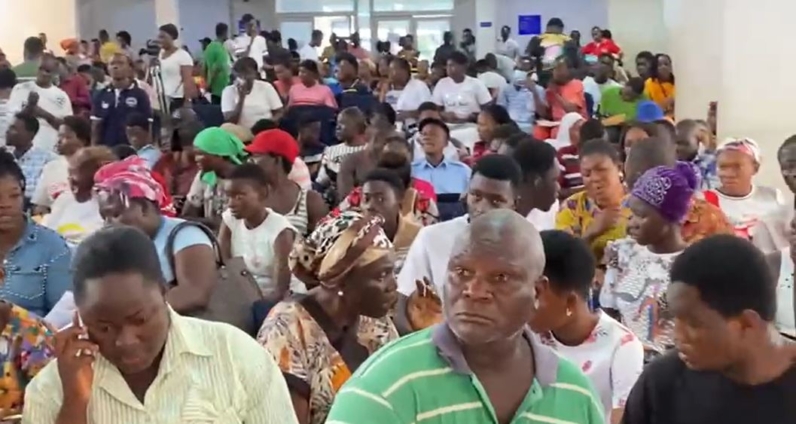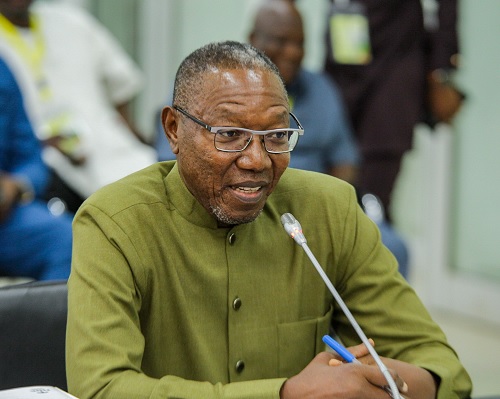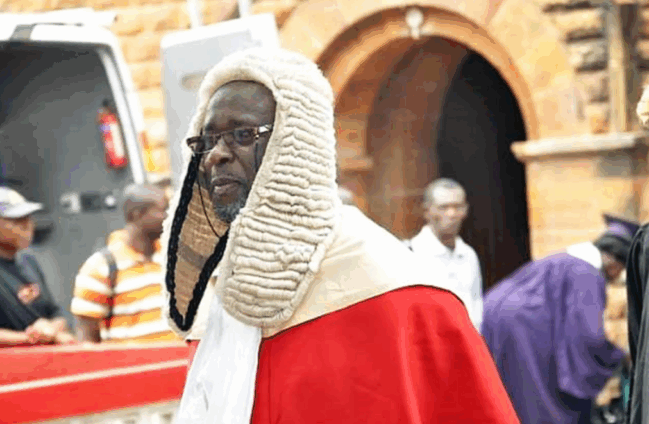The release of the 2025 Senior High School (SHS) placement results has thrown thousands of parents and students into frustration, with the Ghana National Association of Teachers (GNAT) Hall in Accra becoming the epicenter of confusion and desperation.
The Ghana Education Service (GES) announced the placement results on Wednesday, September 17, confirming that 603,328 candidates sat for the Basic Education Certificate Examination (BECE), of which 590,309 qualified for SHS placement.

According to official data, the Computerized School Selection and Placement System (CSSPS) automatically placed 483,800 students (82%), leaving 107,509 candidates (18.2%) unplaced. These students have been directed to use the self-placement portal.
Parents and students flocked to the GNAT Hall, designated as the national resolution centre, in hopes of correcting placement errors or securing a school through the self-placement system. Witnesses described long queues, anxious crowds, and heightened emotions as families waited hours to be attended to.
“I came here to change the school that the system gave to my son,” said Daniel Lartey, a frustrated parent. “Since we got here, the queue has been overwhelming. I wish he attended a school closer to us, particularly a day school.”
Reports indicate that issues range from students being mismatched with schools—including boys placed in all-girls schools—to those assigned to academic streams instead of their preferred technical or vocational tracks. Some parents were also denied re-entry after stepping out to print documents, further heightening tensions.
Deputy Minister of Education, Dr. Clement Apaak, who visited the centre, acknowledged the difficulties but called for patience.
“Not every student will get their first choice, especially in the top-tier schools where demand is high. But there are equally good schools available that can meet their educational needs,” he assured.
He also emphasized that the reporting date for new SHS students, set for October 18, was deliberately chosen to give ample time for the resolution of outstanding placement challenges.
Kofi Asare, Executive Director of Africa Education Watch, noted that the root of the problem lies not in the overall lack of spaces, but in the demand for prestigious schools.
“We have more spaces in schools than we actually need,” he explained on Citi FM. “But the issue is that while the country has spaces in our secondary schools, the spaces do not meet the full expectations, tastes, and choices of parents.”

The Ministry of Education has repeatedly warned parents and students not to pay money to third parties claiming to secure placements, stressing that the process remains free of charge.
With queues at the GNAT Hall growing daily, the coming weeks will be critical as thousands of families await final resolutions. While the government insists most cases will be addressed before the October reporting date, the experience has reignited debate over the fairness and transparency of the placement system, and whether reforms are needed to ease future anxieties.
For now, parents and students continue to endure long waits and uncertainty, clinging to the hope of securing a school that matches their educational aspirations.



